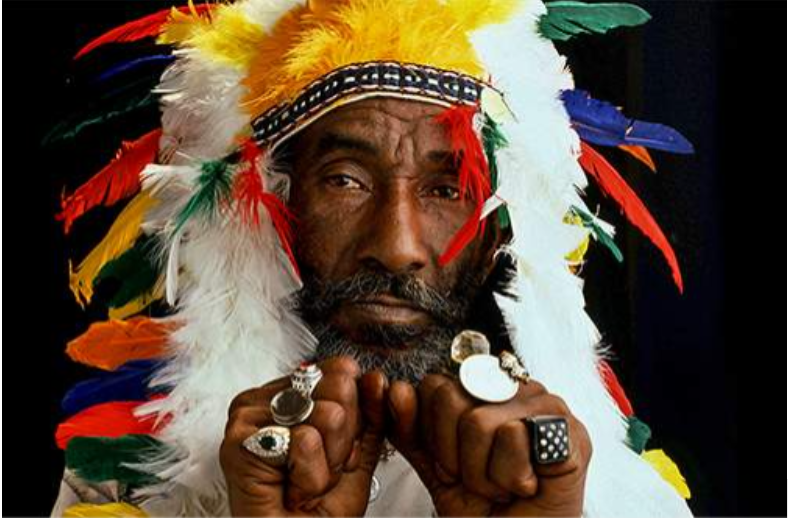LEE “Scratch” Perry, the enigmatic producer/artiste whose cutting-edge music helped make reggae a global brand, died in the Noel Holmes Hospital in Lucea, Hanover, on August 29. He was 85.
The Jamaica Observer understands that Perry, who also has a home in Switzerland, was ailing for some time. No cause of death was given.
Entertainment and Culture Minister Olivia “Babsy” Grange, who had been in touch with his family, confirmed the pioneer producer’s passing.
“I’ve been in touch with his widow, Mirelle, and, as you can imagine, she is obviously distraught by her husband’s death. She’s grief-stricken,” Grange told the Jamaica Observer yesterday.
According to Observer sources, Perry was rushed to the Noel Holmes Hospital where he was pronounced dead.
Singer Boris Gardiner, who played on several hit songs produced by Perry, hailed him as a pioneer.
He recalled first meeting Perry when he (Perry) worked at legendary producer Clement “Coxson” Dodd’s pressing plant in 1969.
“Scratch would come into the recording sessions and listen. After he resigned (from Studio One), he went and started his (Black Ark) studio… He was somebody different. He had his own ideas and he wanted to bring in new things. He had ideas and brought in good musicians to execute his vision,” said Gardiner.
“When he’s not getting what he wanted, he would tell you try this, or try that there… He tried to motivate you… He came up with a nice little sound for himself; a reggae sound, authentic, that was different from the normal reggae. He used effects, most effects, and if you listen to his music, you’ll hear those effects that made him one of the best,” he continued.
Gardiner’s bass lines can be heard on Junior Murvin’s Police and Thieves, Beat Down Babylon (Junior Byles), as well as the album Heart of The Congos by The Congos. All produced by Perry’s Upsetter label.
He also produced Punky Reggae Party, a 1977 song by Bob Marley and The Wailers hailing the punk movement in the United Kingdom.
“Scratch brought Marley’s Punky Reggae Party tape to drummer Mikey “Boo” Richards and myself and said he wanted us to enhance it, and we did it,” he said.
Gardiner last saw Perry about five years ago when the producer asked him to play bass on a project he was associated with.
“He was a pioneer. He has done so much for reggae music with Bob Marley and other artistes. He certainly will be missed,” said Gardiner.
Grange hailed Perry as an inspirational figure who helped young singers and musicians to develop their craft.
“His contribution to developing and propelling ska, rocksteady, and reggae has been mammoth… I recall his work with Bob Marley. It is said that Scratch helped with formulating Marley’s unique sound,” she said in a release.
“I am incredibly saddened by his passing, but I will continue to celebrate his genius and the body of work he’s given us,” Grange added.
Perry was born in the Kendal district of Hanover. He made his name in the late 1960s and throughout the 1970s working with revolutionary artistes like The Wailers, Max Romeo and Junior Byles.
Perry, who recorded as an artiste in the late 1960s and 1970s, was in demand throughout Europe and parts of the United States. In 2003, he won a Grammy Award for Best Reggae Album for titled J amaican E T.
In 2011, The Upsetter, a documentary film about Perry, narrated by American actor Benito Del Toro, was released in theatres worldwide after premiering at the 2008 SXSW Film Festival. Directed and produced by American film-makers Ethan Higbee and Adam Bhala Lough, it opened in Los Angeles in March 2011.
Perry received the Order of Distinction from the Jamaican Government for his contribution to Jamaican music in 2012.





